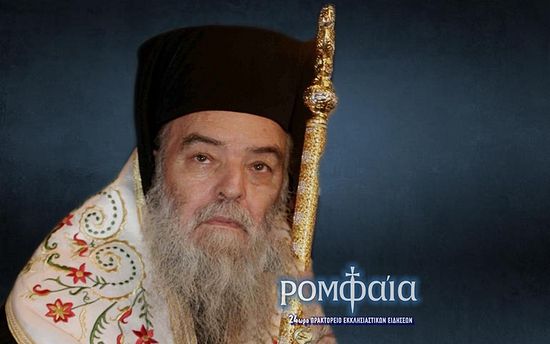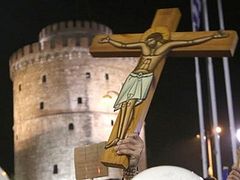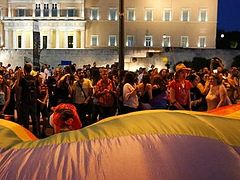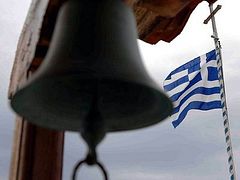Gortyn, Greece, October 23, 2017
“We haven’t even had time to breathe after the law adopted on the change of gender from the age of 15,” Metropolitan Jeremiah of Gortyn writes, “and a new blasphemy, mixed with obscenity, has come to our country in the form of a theatrical work.” The outspoken metropolitan is referring to the play “The Hour of the Devil,” which, as he writes, vulgarly insults the Lord Jesus Christ and the Most Holy Theotokos, Romfea reports.
“We must not remain indifferent to this blasphemy against our faith… Our silence and apathy, when our faith is mocked, shows our indifference, and shows that the love of Christ has not spoken loudly in our hearts,” His Eminence continues.
The play, which depicts a discussion between a young woman and a personable devil, also glorifies and depicts Satan as the brother of Christ, and mocks the Holy Cross.
As previously reported, about 100 people gathered outside the Aristotelian Theater in Thessaloniki on October 18 to protest the Fernando Pessoa play that was showing there from October 11 to 22. The crowd came out with crosses, icons, and Greek flags, chanting patriotic slogans and Church hymns. According to various reports, the group consisted mainly of Old Calendarists who are outside of the canonical Orthodox Church in Greece.
The canonical Church is adding its voice to the protest in the person of Met. Jeremiah, who is often among the more vocal hierarchs standing up for the dignity and purity of the Orthodox faith. Late last year he spoke out in defense of a brother bishop who was summoned to court for criticizing sodomy, and has criticized the ecumenistic elements of the documents of the Crete Council, elsewhere referring to ecumenism as “an insidious, satanic movement.”
Most recently, sharply criticizing the new transgender law, the metropolitan asked, “Why have the authorities foisted this dirty bill upon us, when the nation has rejected it? Isn’t that a dictatorship?” “But evil has been committed, the law has been adopted. Adopting such laws, the Greek state is walking the path of decay of other peoples. Sin has ascended the throne and rules. We are on the eve of the reign of Antichrist,” he warned.
According to Met. Jeremiah, Pessoa gave a philosophical overlay to his composition, in an attempt to impress and distract from the true message of the play. “In its essence, the author disputes good, as well as evil, and accepts that good has evil in it, and evil has good in it. That is, there is no good and evil,” the hierarch of Gortyn writes.
In this context, the fiery metropolitan quotes Isaiah 5:20: Woe unto them that call evil good, and good evil; that put darkness for light, and light for darkness; that put bitter for sweet, and sweet for bitter! He also recounts the history of the Fall of Adam and Eve and the destruction of the world in Noah’s flood, which came as a result of mankind’s confusion of good and evil.
His Eminence concludes by expressing the prospect and fear that the grace of God will abandon the nation of Greece for what is happening in it, noting that, in large part, the clergy and faithful are not raising their voices in defense of Orthodoxy.





